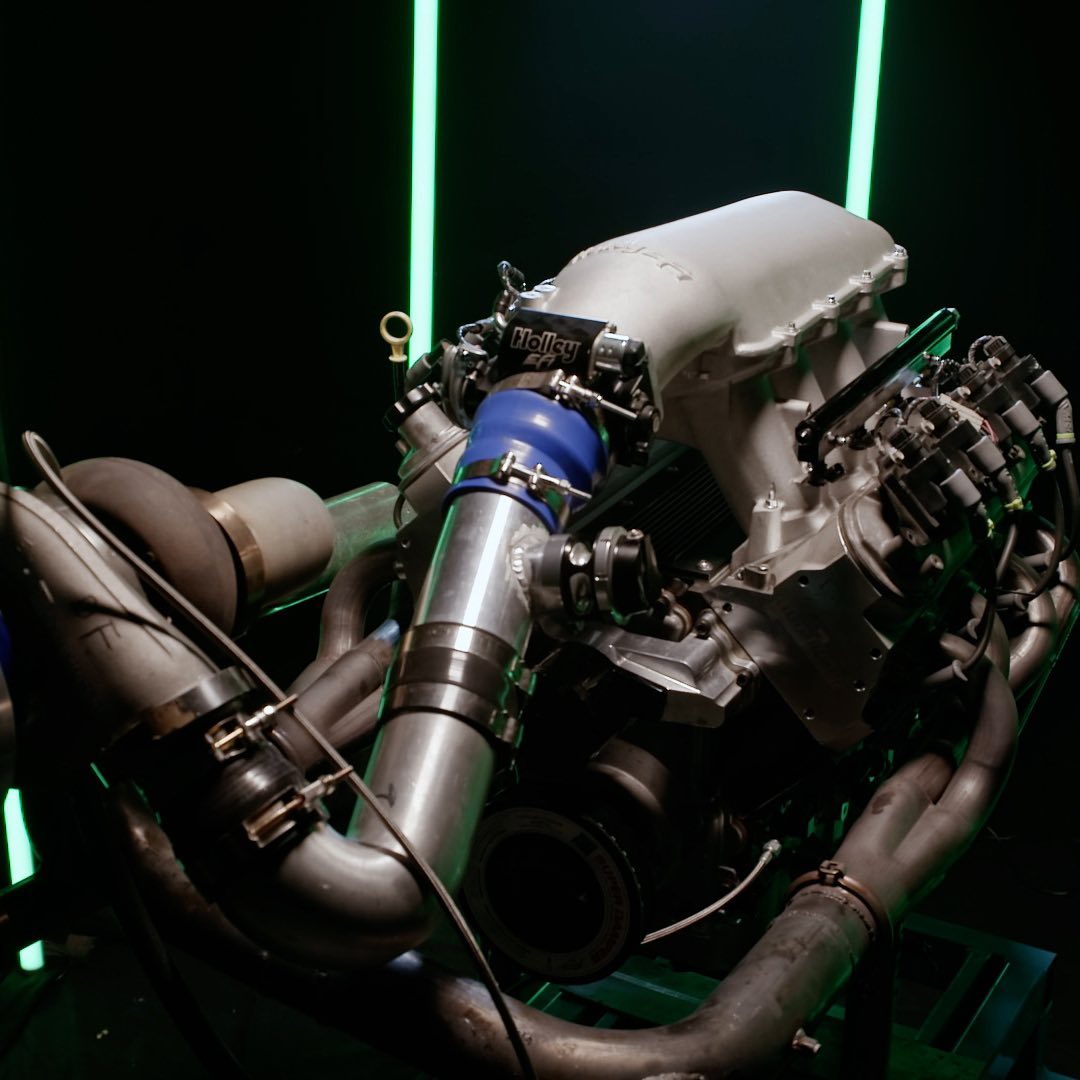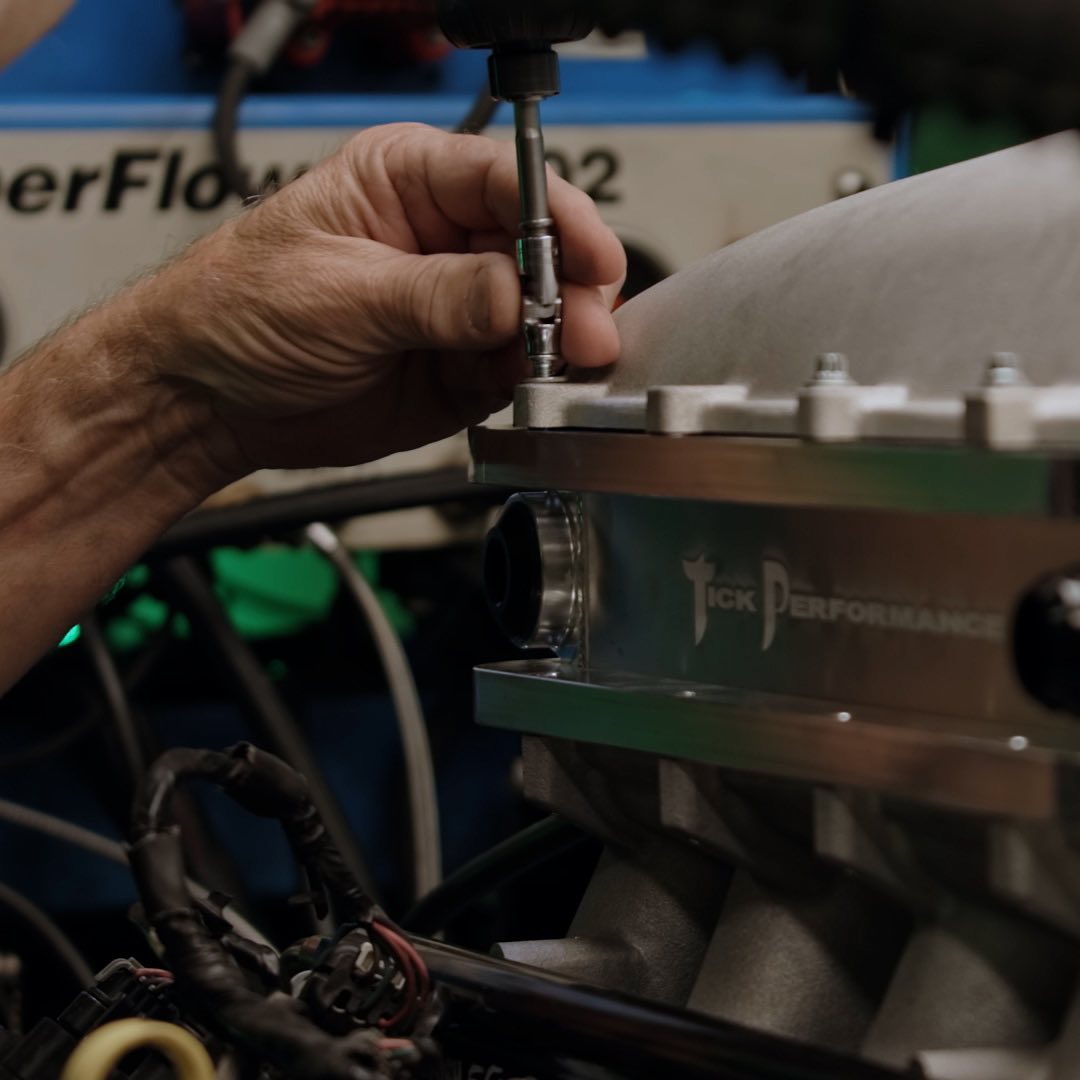Engine Masters Air-To-Water Dyno Testing
Posted by #TeamTick on 19th Jan 2024

Engine Masters performed several tests utilizing our 1,400HP Air-To-Water Intercoolers. They focused on the performance impact of adding an intercooler with varying tank sizes. The engine setup remained the same across all iterations, a turbocharged 408 LS with a 9.3:1 Compression, Blueprint Engine Cylinder Heads, Comp Cam Hydraulic Roller Cam, Holley Hi-Ram Intake, and a Holley EFI System. The baseline average dyno numbers without an intercooler were 721.2TQ @ 5200 RPM and 788.6HP @ 6500 RPM, with a peak boost of 8.5 PSI.

When only a “dry” intercooler was added, without an ice tank or water, there was a surprisingly notable increase in torque and horsepower, with a slight but consistent decrease in air temperature. The air temperature in the manifold at the highest point was 138°F. That was a 16.7 torque and 20.2 horsepower increase over the baseline from simply bolting the intercooler on. The air temperatures also remained a steady 9 degrees cooler than the baseline. The performance further improved when a 1-gallon tank was added, and even more so with a 5-gallon tank.
The most significant increase in performance was observed when the 5-gallon tank was filled with ice, resulting in a torque of 814.1TQ @ 4800 RPM, horsepower of 864.9HP @ 6300 RPM, and a substantial decrease in air temperature to 80°F. This represents a 92.1 torque and 76.3 horsepower increase over the baseline.
The conclusion is that the 1400HP Air-To-Water intercooler decreases air temperatures within the manifold leading to an increase in performance. Another key takeaway from the ice tank size is that the larger the tank the more efficiently it will remain cool over a long period of time.

